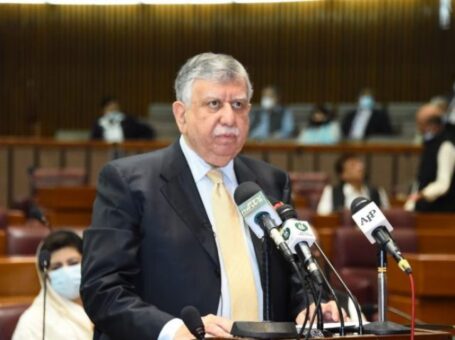Finance Minister Shaukat Tarin announced on Tuesday that the government is set to launch Universal Self-Assessment, a third-party approach, for auditing 15 million potential taxpayers.
(more…)Tag: Finance Bill 2021
-
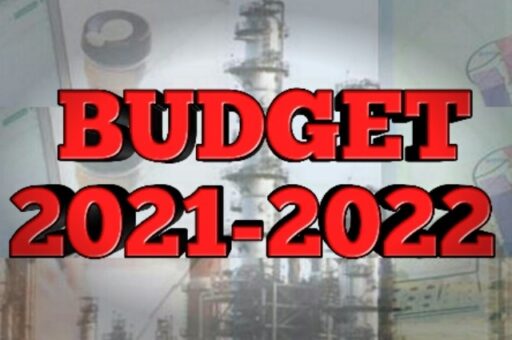
National Assembly approves budget, finance bill 2021
ISLAMABAD: The National Assembly on Tuesday approved federal budget 2021-2022 and Finance Bill 2021.
After over a two-week long debate, the National Assembly on Tuesday passed the federal budget with a total outlay of Rs 8.487 trillion, with around 19 percent additional allocations as compared to last year’s Rs 7.137 trillion.
The Finance Bill 2021-22 was moved before the parliament by Finance Minister, Shaukat Tarin, which was passed with majority vote.
Some amendments in the bill proposed by the Members of National Assembly were accommodated by the house, whereas some others were rejected.
-
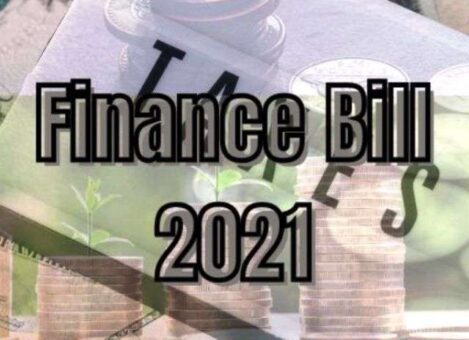
National Assembly may pass Finance Bill 2021 on June 29
ISLAMABAD: The National Assembly will meet on Tuesday June 29, 2021 in which Shaukat Fayaz Ahmed Tarin, Minister for Finance and Revenue to move the Finance Bill 2021 with certain amendments for approval from the house.
A notification issued by the National Assembly Secretariat stated that the assembly will meet on Tuesday June 29, 2021 at 11:30AM.
Finance Minister Shaukat Tarin to move that a bill to give effect to the financial proposals of the federal government for the year beginning on the first day of July 2021 and to amend certain laws [The Finance Bill, 2021], be taken into consideration at once.
“Further, the finance minister to move that a bill to give effect to the financial proposals of the federal government for the year beginning on the first day of July, 2021 and to amend certain laws [The Finance Bill, 2021], be passed,” according to the notification.
-

Tax officials given arrest powers on concealment above Rs200 million; changes made to Finance Bill 2021
ISLAMABAD: The government has reviewed the proposal related to power of tax officials to arrest persons under criminal proceedings for concealment of income.
The power to make arrest may be restricted to concealment of Rs200 million and above, sources in Federal Board of Revenue (FBR) said.
Through Finance Bill 2021, it is proposed to substitute the Section 203 which at present deals with procedure of appeal against the order of a Special Judge.
The Bill proposed to substitute section 203A which provides that an authorized officer may arrest a person as per the provisions of the Code of Criminal Procedure, 1898 on the basis of material evidence and he has a reason to believe that person has committed an offence of concealment of income or an offence warranting prosecution.
Further, where a person commits an offence, the Chief Commissioner with the prior approval of the Board either before or after the institution of any proceedings for recovery of tax, compound the offence if such person pays the tax due along with such default surcharge and penalty.
Accordingly, existing section 202 is proposed to be deleted from the statute.
If the person suspected of committing an offence or concealment is a company, every director or officer of that company whom the authorized officer has reason to believe that he is personally responsible for actions of the company contributing to offence or concealment of income or any offence, shall be liable to arrest.
Provided that any arrest shall not absolve the company from the liabilities of payment of tax, default surcharge and penalty.
The sources said that the after this proposal the business community strongly reacted and termed it immense discretionary powers to the tax authorities.
The government realizing the sensitivity of the situation made changes it its actual proposal and now the power of tax officials has be restricted in those cases where concealment is abve Rs200 million.
The government will present the Finance Bill 2021 after making certain changes before the Parliament for approval.
-

How much a phone call will cost after new tax?
Persons making calls through their cell phones will cost 38 percent more following the implementation of proposed change in tax rate effective from July 01, 2021.
The government has proposed one rupee additional burden on a phone call having duration above five minutes. This was announced by Finance Minister Shaukat Tarin a day earlier at the Senate.
In fact the finance minister announced to reduce the tax burden as compared with the actual proposals announced through the Finance Bill 2021 that was additional tax on a call having duration above three minutes.
According to sources in telecom industry the existing call rate of duration above five minutes is Rs1.97, which also included 19.5 percent federal excise duty. However, with the implementation of proposed rates the call above five minutes will cost Rs2.72.
The telecom industry believes the proposed changes in taxation of call rates are not possible to implement.
Industry sources said that the proposed taxes are un-implementable as the charging structure is not linear and is based on bundle offers to facilitate prepaid users which account for 98 per cent of overall cellular subscribers in Pakistan.
This regressive move will play havoc with the prepaid bundles being enjoyed by the lowest segment of society as the operators will be constrained to remove such offerings, making voice calling significantly more expensive.
In addition, users will quickly learn to redial before 5 minutes to defeat this proposed levy hence it may bring nothing to the government but add to the complexity for the telecom sector and operators while causing massive inconvenience to the citizens.
-

New tax slabs for property income proposed
ISLAMABAD: The Finance Bill 2021 has proposed amendment to the withholding tax slab rates applicable in case of withholding agents other than company on account of payment of rent of immovable property under Section 155 of the Income Tax Ordinance, 2001.
Following are the proposed rates are:
Gross amount of rent:
01. Where the gross amount of rent not exceeding Rs300,000: the tax rate shall be zero
02. Where the gross amount of rent not exceeding Rs300,000 but does not exceed Rs600,000: 5 per cent of the gross amount exceeding Rs300,000
03. Where the gross amount of rent not exceeding Rs600,000 but does not exceed Rs2,000,000: Rs15,000 + 10 per cent of the gross amount exceeding Rs600,000
04. Where the gross amount of rent exceed Rs2,000,000: Rs155,000 + 25 per cent of the gross amount exceeding Rs2,000,000.
-
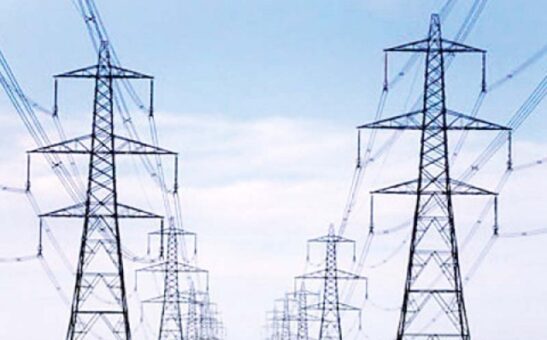
Domestic electricity consumers to pay tax on monthly bill above Rs25,000
ISLAMABAD: The tax authorities have imposed tax on domestic electricity consumers – whose monthly bill is Rs25,000 and above.
According to a commentary on budget 2021/2022 by KPMG Taseer Hadi & Co. currently, tax collection on domestic consumers of electricity is prescribed under section 235A of Income Tax Ordinance, 2001 whereby 7.5 per cent advance tax is required to be collected if the monthly electricity bill is of Rs. 75,000 or more.
Such advance tax is adjustable against tax liability of such person. Whereas, tax collection on commercial and industrial consumer of electricity is prescribed under section 235 of the Income Tax Ordinance, 2001.
The Finance Bill 2021 proposed to withdraw section 235A and also proposes to insert requirement of tax collection on domestic consumers of electricity in section 235 based on following criteria:
—if the consumer’s name is not appearing in Active Taxpayers List (ATL);
—monthly bill is Rs. 25,000 or more;
—tax rate will be 7.5 per cent;
—tax collection on annual bill amount up to Rs360,000 will be minimum tax;
—tax collection on monthly bill over and above Rs. 30,000 will be adjustable against tax liability of a person.
The Bill further proposed to exclude those persons whose entire income is subject to final tax or minimum tax regime under any provisions of the Income Tax Ordinance, 2001 from the application of the above section.
-

General Sales Tax on wheat bran taken back: FBR
ISLAMABAD: Federal Board of Revenue (FBR) on Wednesday said that the proposal of 17 percent sales tax on wheat bran has been taken back.
In a statement, the FBR said that in order to boost the present government’s drive to keep inflation under control and to give maximum relief to the business community, General Sales Tax (GST) on wheat bran proposed to be enhanced to 17 percent in the Finance Bill is also being taken back.
The FBR further clarified that the table prescribing tax rates for minimum tax on turnover basis has been substituted in the Finance Bill-2021 to provide relief to retailers of Fast Moving Consumer Goods (FMCG) including flour mills and refineries.
The words, “flour mills” could not be mentioned inadvertently in the table which was an error and had been noted and would be rectified in the amended bill.
This would mean that the minimum tax applicable on flour Mills would remain at 0.25 per cent of the turnover instead of 1.25 per cent as being generally interpreted.
-

Rules for computation of profit and gains for SMEs
ISLAMABAD: Rules have been issued for computation of profit and gains of Small and Medium enterprises (SMEs). The SMEs shall be required to register with the Federal Board of Revenue (FBR) on its IRIS web portal.
The SMEs are also given option to register with Small and Medium Enterprises Development Authority on its SME registration portal (SMERP).
There shall be following two categories of small and medium enterprises and tax on their taxable income shall be computed at the tax rates given in the table below:
Category – 1: Where annual business turnover does not exceed Rs100 million, the tax rate shall be 7.5 per cent of taxable income
Category – 2: Where annual turnover exceeds Rs100 million but does not exceed Rs250 million, the tax rate shall be 15 per cent of taxable income
The Finance Bill 2021 proposed definition of Small and Medium enterprises as:
—a person who is engaged in manufacturing as defined in clause (iv) of sub-section (7) of section 153 of the Ordinance; and
—his business turnover in a tax year does not exceed two hundred and fifty million rupees.
Subject to a condition that if annual business turnover of a small and medium enterprise exceeds two hundred and fifty million rupees, it shall not qualify as small and medium enterprise in the tax year in which annual turnover exceeds that turnover or any subsequent tax year.
The Bill proposes a new section read with Fourteenth Schedule which shall deal with the computation and payment of tax for small and medium enterprises (SMEs) for tax year 2021 and onward as per the procedure laid down.
Option for final tax regime
—The small and medium enterprises may opt for taxation under final tax regime at the rates given in the table below
Category – 1: Where annual business turnover does not exceed Rs100 million, the rate of tax shall be 0.25 per cent of gross turnover
Category – 2: Where annual business turnover exceeds Rs100 million but does not exceed Rs250 million
—Option under this rule shall be exercised at the time of filing of return of income and option once exercised shall be irrevocable for three tax years. The provisions of section 177 and 214C shall not apply to SME who opts for taxation under Final Tax Regime.
SMEs that opt for taxation under normal law may be selected for tax audit through risk based parametric computer ballot under section 214C of the Ordinance if its tax to turnover ratio is below tax rates specified in these rules.
The cases selected under audit of this rule shall not exceed 5 per cent of the total population of SMEs whose tax to turnover ratio is below tax rates given in these rules.
-
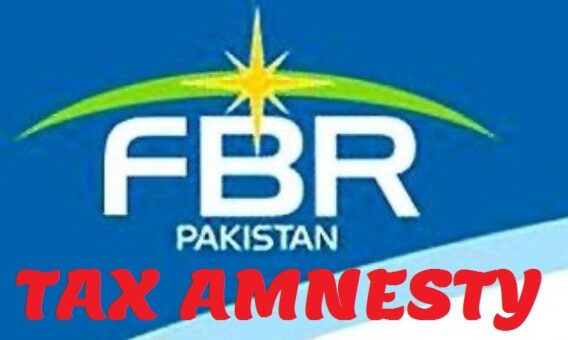
Bill proposes date extension to amnesty for builders and developers
ISLAMABAD: The Finance Bill, 2021 has proposed to extend key dates for an amnesty to builders and developers who opt to pay tax computed under special provisions.
KPMG Taseer Hadi & Co. Chartered Accountants said that the Finance Bill 2021 proposed to extend key dates for builders and developer who opt to pay tax computed under special provision in accordance with the rules in the Eleventh Schedule of Income Tax Ordinance 2001 on a project by project basis.
Key proposed amendments are as under:
—A new project or an incomplete existing project that is completed by 30 September 2023.
—Any income, profits and gains of a builder or developer of an incomplete existing project earned up to tax year 2019 or tax year 2020 as the case may be.
—Provisions of section 111 of Income Tax Ordinance, 2001 shall not apply to capital investment made in a new project in form of money or land subject to following conditions:
-If the investment is made by a builder and developer being an individual, such person shall open a new bank account and deposit such amount on or before 30 June 2021.
-If the investment is made by a builder and developer through a company or association of person being a single object company or association of person on or before 30 June 2021.
-A person making investment as mentioned above shall submit a prescribed form on Iris web portal by 30 June 2021.
-The project grey structure shall be certified in case of builder by approving authority or NESPAK on or before 30 September 2023.
-In case of developer the approving authority or NESPAK shall certify landscaping on or before 30 September 2023 and a firm of chartered accountants shall certify that at least 50 per cent of plots have been booked for sale and at least 40 per cent of sale proceeds have been received by 30 September 2023 and 50 per cent of the roads have been laid up as certified by the approving authority or NESPAK.
—Provisions of section 111 of Income Tax Ordinance, 2001 shall not apply to first purchaser of building or a unit of the building purchased from the builder from a new project or from incomplete existing project and payment is made through cross banking channel between date of registration of the project and ending on 31 March 2023.
—Provisions of section 111 of Income Tax Ordinance, 2001 shall not apply to the purchaser of plots who intends to construct building if purchase and payment is made through cross banking channel on or before 30 June 2021 and construction is started on or before 31 December 2021 and such construction is completed on or before 30 September 2022.
